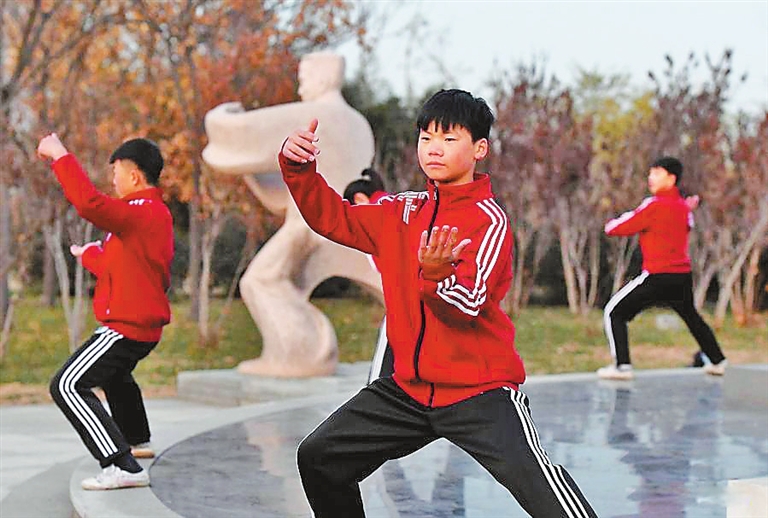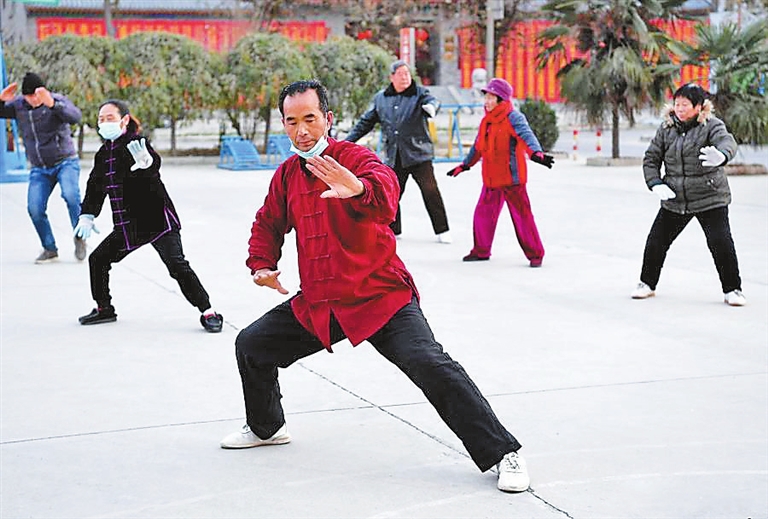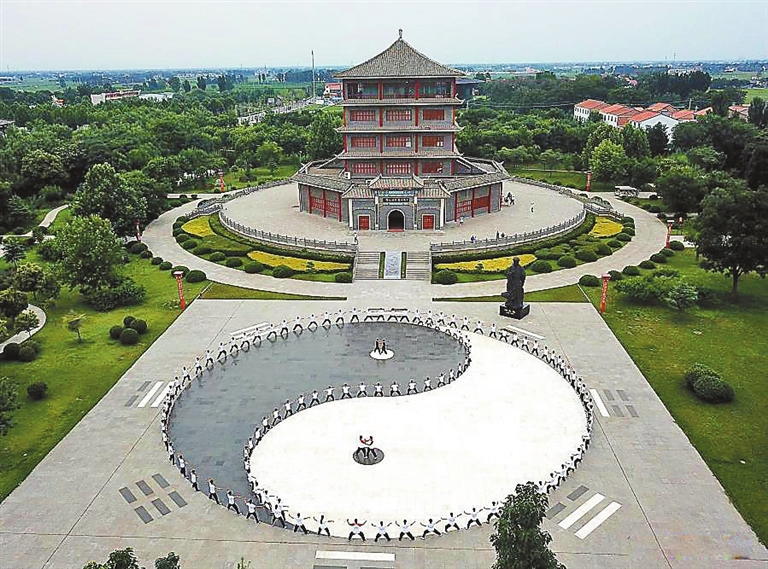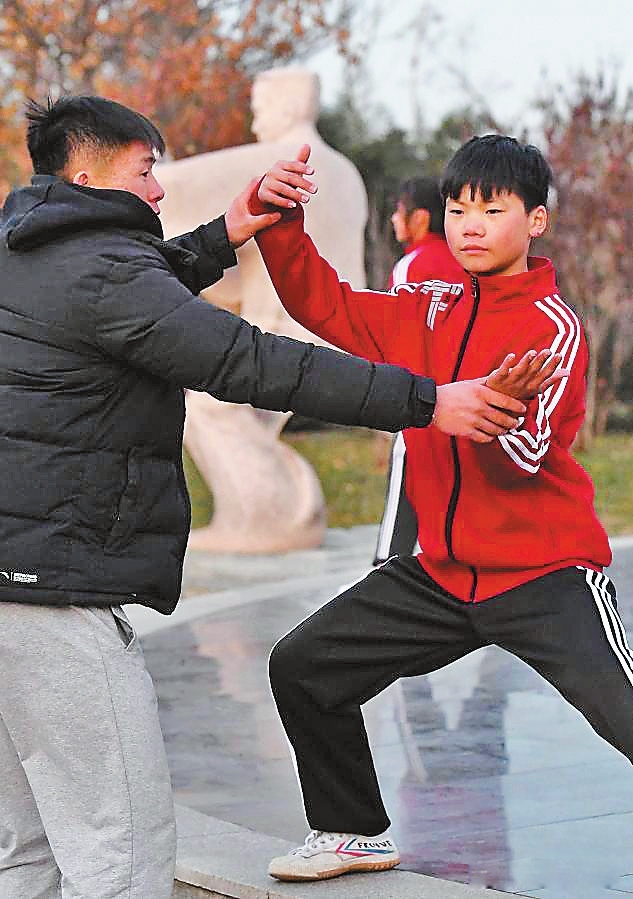



THE United Nations Educational, Scientific and Cultural Organization (UNESCO) recently inscribed China’s Taijiquan on the Representative List of the Intangible Cultural Heritage of Humanity. The decision was announced during the online meeting of the UNESCO Intergovernmental Committee for the Safeguarding of the Intangible Cultural Heritage held from Dec. 14 to 19 in Kingston, capital of Jamaica. Taijiquan, a kind of traditional martial arts, was born in the mid-17th century in a small village named Chenjiagou, in Central China’s Henan Province, before it spread to more than 150 countries and regions, attracting more than 100 million practitioners. From Chenjiagou to Beijing It took almost 200 years for Taijiquan, from being created in a little village, to spread to Beijing, the capital city of China, and then across the country. Chen Bu, the first generation of the Chen family in Chenjiagou, moved from Shanxi Province to this village located on the northern bank of the Yellow River during the Ming Dynasty Hongwu years (1368-1398), where he taught martial arts to villagers to protect their homes. About 300 years later, Chen Wangting, the ninth generation of the Chen family in Chenjiagou, created a new kind of martial arts and named it Taijiquan. Following the traditional rules, Taijiquan was only taught to men in the Chen family until Yang Luchan, 10 at that time, came from Hebei Province to Chenjiagou to learn it secretly in 1809. “Master Chen Changxing discovered but didn’t send him away as he found this young man was both talented and upright,” said Yan Shuangjun, a researcher of Taijiquan. Yang returned to his hometown in Hebei’s Handan city to teach Taijiquan about 30 years later and then moved to Beijing to teach it to rich and upper-class families. “No one was able to beat Yang in Beijing, which made him very famous, so more and more people wanted to learn Taijiquan,” Yan said. “Then these followers called Yang’s martial arts Yang Taijiquan.” Taijiquan has now been developed and adapted to many different styles named after a master’s family name, such as Wu Taijiquan, Sun Taijiquan, and so on. Chenjiagou became a shrine for all Taijiquan followers, attracting people from all over the world to make a pilgrimage there. From China to the world French doctor Matthieu Tachon fell in love with Taijiquan after his first visit to Chenjiagou to see a master’s show in 2005 with his Chinese girlfriend, who was born in Henan’s capital Zhengzhou. He returned the following year to spend two months learning the craft. Between 2006 and 2010, Tachon took at least one month each year out of his busy schedule to practice Taijiquan in Chenjiagou. By 2010, he opened his own Taijiquan academy and invited masters to co-teach the students in France. “The academy now has 30 regular students. I teach them twice a week, and other times of the week they practice on their own,” Tachon said. Tachon is one of the millions of foreigners who love Taijiquan, which has spread to many countries and regions since China opened its door to the world in the late 1970s. Residents of Chenjiagou have been working to promote Taijiquan internationally since the 1980s. Chen Zhenglei, Chenjiagou’s Taijiquan master, now 71, went to Japan to teach Taijiquan in 1983, and has visited more than 60 countries and regions and opened more than 100 teaching centers around the world. “Many students not only fall in love with Taijiquan, but they also come to like Chinese calligraphy and philosophy,” Chen Zhenglei said. “If you want to practice Taijiquan well, you must learn Chinese culture,” Tachon agrees with Chen, and he has read “Dao De Jing” written by Laozi, a philosopher from the Spring and Autumn Period (770-221 B.C.). A living tradition “The best way to preserve Taijiquan is to teach more people to practice it,” Yan said. Chenjiagou now has dozens of Taijiquan schools and more than 800 masters, drawing learners from all over the world. Henan’s Jiaozuo City, where Chenjiagou is located, has held 10 sessions of international Taijiquan tournaments since 1992, attracting tens of thousands of players to participate. “Taijiquan is one of the most important wushu events promoted by the International Wushu Federation. Its inclusion is of great significance to the promotion of wushu, and especially Taijiquan, globally,” said Zhang Qiuping, Secretary General of the International Wushu Federation. Since 2014, the World Taijiquan Championships have been held every two years by the International Wushu Federation. It provides a platform for communication and learning between the Taijiquan elites and lovers around the globe. In January 2020, Taijiquan became an official event at the 2026 Dakar Youth Olympic Games. “Taijiquan is a sport for everyone, both the young and the old, while it embodies the Chinese philosophy that can bring people inner peace. I believe more and more people will fall in love with it,” Yan added. Taijiquan has permeated schools, factories, communities and villages in China. Many Taijiquan lovers can be seen practicing in parks, squares, and even on roadsides. “We are collecting historical documents about Taijiquan, in order to build a database for people to research and spread it,” Yan said. “Despite practicing different styles of Taijiquan, we all protect and spread it, learning from each other and promoting exchanges and cooperation,” said Tan Xingmin, president of Wang Qihe Taijiquan association in Hebei Province. (Xinhua) | 
